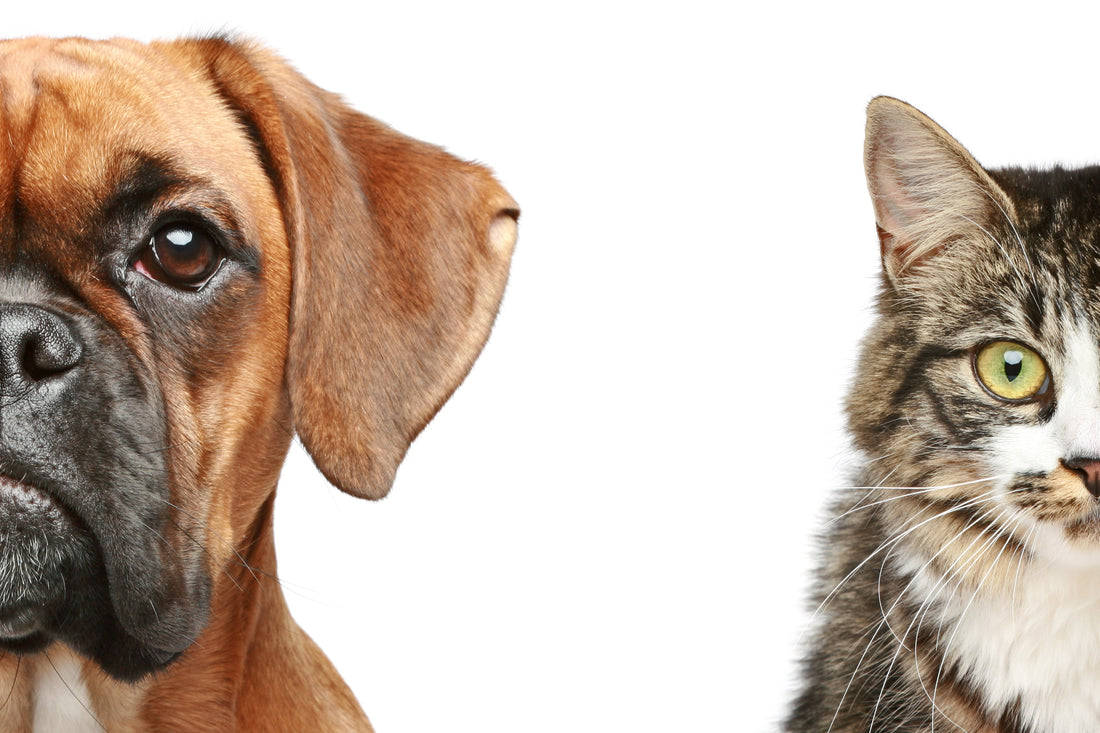
What Your Pet Choice Says About Your Personality
Michelle at Vet Organics Tags: cats-Misc (2)Dogs-Misc (70)
Are you a dog or a cat person? Do you prefer birds, reptiles, or exotic animals? Just like all our choices in life, the kind of pet we have, or wish we had, reveals a lot about our personality.
An article in Psychology Today reiterates the stereotypes attached to dog people versus cat people and points out that these stereotypes can be put to good use when choosing who to date, marry, or hire.
Does it make logical sense that dog people are more outgoing and willing to socialize, given that their pets are highly social creatures? Dogs demand a lot of fun, care, and loving attention. Do dog guardians enjoy these same life essentials?

We all know the stereotypes attached to crazy cat ladies. But there are many more cat lovers than women living alone. Taking care of a cat takes a longer commitment because they live longer, and a great deal of patience because they need to be loved on while also given their space. Does this mean that cat people are better at long-term commitments? Does it mean they prefer to go without overtly warm and affectionate relationships? Maybe they just don’t care for PDA (public displays of affection)? And there’s also the fact that humans do not own cats. Cats rule their human slaves. Does this mean cat people are less dominant?
Scientific American MIND conducted a meta-analysis of peer-reviewed studies and pet industry market surveys that revealed interesting differences and commonalities among a variety of pet owners. Read on to find out if these results are consistent with your personality given your choice of pet.
What makes a dog person?
- You are an extroverted, agreeable, and/or careful person.
- You most likely got your dog from a shelter or a rescue group, which signifies a compassionate nature.
- You most likely do not like cats, although this isn’t a rule.
What makes a cat person?
- You are most likely just a little neurotic and anxious, but you are also adventurous under the right circumstances.
- You are not particularly socially dominant.
- You are most likely fond of both cats and dogs, but you reserve your fondness for dogs to a per-dog basis.
What makes a bird person?
- You consider yourself polite and caring.
- If you’re a female, you are socially dominant.
- You are socially outgoing and expressive
What makes a horse person?
- You have an assertive and introspective personality.
- You may not have a strong nurturing nature.
- If you’re male, you are aggressive and socially dominant. If you’re female, you are non-aggressive and easygoing.
- You most likely see yourself as disciplined and dependable.
What makes a cold-blooded and exotic pet person?
- If you are male, you’re often disagreeable.
- If you are female, you’re open-minded about new things.
- If you like snakes, you consider yourself neat, tidy, relaxed, unpredictable, unconventional, and comfortable with the weird.
- If you prefer turtles, you’re most likely a hardworking, reliable, highly-motivated, rational, and a goal-oriented individual.

Whatever companion animal we prefer, and whatever breed we settle on, reflects how we see ourselves. Studies have found that men who want to project toughness choose dogs that are perceived as tough and intimidating. Individuals who often feel unpopular and misunderstood choose pets that are also considered unconventional and not generally accepted. People who feel the desire to care for another creature, but don’t want to put much effort into it often end up with goldfish.
Another study conducted by researchers at the University of California, Berkeley and California State University, East Bay surveyed more than 1,000 pet owners and assessed them based on their key personality traits. Results revealed that “higher levels of neuroticism are associated with affection and anxious attachment suggests that people who score higher on that dimension may have high levels of affection and dependence on their pets,” as stated by research leader, Mikel Delgado. Researchers speculate that this association could also translate to better pet care and a greater understanding of a pet’s needs.
We can easily conclude from these combined results that people who are extremely affectionate toward their pets do treat them as they would their children. Arthur Conan Doyle nicely sums up how our pets are a reflection of who we are. “A dog reflects the family life. Whoever saw a frisky dog in a gloomy family, or a sad dog in a happy one? Snarling people have snarling dogs, dangerous people have dangerous ones.”
Although this quote only refers to dogs, we can all agree that on a general level, it applies to all pets. If none of these personality associations apply to you, however, then perhaps you and your pet are the exception to the rule.
Further Reading:
- “Your Pet Says More About Your Personality Than You Might Think,” HuffPost
- “What Your Pet Reveals about You,” Scientific American
- “8 Things Your Pet Says About Your Personality,” Barking Up The Wrong Tree
